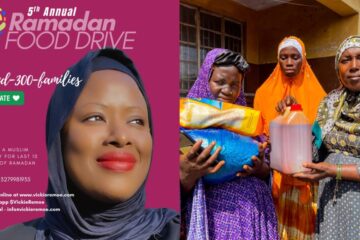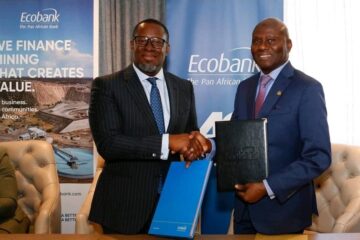Sierra Leone’s School Feeding Program Goes Green with Clean Cooking Stoves

WFP Launches “Re-Energizing School Meals” Project to Improve School Feeding and Combat Deforestation
The World Food Programme (WFP), in partnership with the Government of Sierra Leone and with funding from the OPEC Fund for International Development, launched the “Re-Energizing School Meals” project on May 6th, 2025. The initiative aims to transform school feeding through sustainable and climate-resilient practices.
The official launch at the Westwind Energy factory in Freetown drew key stakeholders from government, international development organizations, and civil society. With a $1.2 million grant from the OPEC Fund, the project will install fuel-efficient stoves and establish community woodlots across 440 schools in Pujehun, Kenema, and Kambia Districts.
WFP estimates that the project will benefit 110,000 schoolchildren and 1,300 volunteer female cooks. By reducing firewood consumption by more than 2,600 metric tons annually, the initiative seeks to combat deforestation, reduce carbon emissions, and create safer, healthier cooking environments in school communities.

Ijeoma Emenanjo (L), Hon. Yeama Mimi Soba-Stephens, Deputy Minister of Environment and Climate Change (M), and Yvonne Forsen, WFP Sierra Leone Country Director
A Step Toward Dignity and Equity
WFP Sierra Leone Country Director Yvonne Forsen described the project as a milestone that addresses not just hunger, but also gender equity, climate action, and education.
“A school meal is not merely a meal — it’s a bridge to learning, and often the only reliable nourishment a child receives daily,” Forsen said.
“Behind every school meal is a woman, often a mother or a neighbor, who volunteers to cook under harmful conditions. Today, we begin to change her reality.”
According to Forsen, the project aligns with Sierra Leone’s National Adaptation Plan, which targets a 50% reduction in climate vulnerability by 2030.
Volunteer cook Memunatu Turay, from Holy Cross Primary School in Kambia District, shared her experience with the new clean stoves.
“The smoke we used to inhale made us sick. I even got burned using the old methods,” Turay said. “Our kitchen is like a living room—safe and smoke-free.”

Yvonne Forsen, WFP Sierra Leone Country Director

Memunatu Turay, Volunteer Cook, Holy Cross Primary School – Rokupr (Kambia District)
Strategic Investment in the Region
Speaking on behalf of the OPEC Fund, Country Manager for West and Central Africa, Ijeoma Emenanjo, underscored the initiative’s importance.
“This is a 100% grant, and a test case for the West Africa region,” Emenanjo explained.
“We normally fund projects through loans, but we pushed for a grant because we believe in the impact of this work. If successful, we will replicate this model in countries like Liberia and The Gambia.”

Ijeoma Emenanjo, OPEC Fund International West and Central Africa Country Manager
Mr. Joseph Lamin, Head of the School Feeding Project at the Ministry of Basic and Senior Secondary Education, affirmed the government’s continued support for sustainable school feeding.
“The project aligns with the Free Quality Education initiative. We’ve seen increased school enrollment and improved learning outcomes, but now we must ensure these gains are climate-resilient and sustainable,” he said.

Mr. Joseph Lamin, Head of the School Feeding Project at the Ministry of Basic and Senior Secondary Education
With Sierra Leone ranked among countries with the highest dependence on biomass fuel—over 90% of households rely on firewood and charcoal—the project’s focus on clean energy and forest restoration comes at a critical time.
As partners reaffirm their commitment to improving education and climate resilience, the “Re-Energizing School Meals” project offers hope that school kitchens can become engines of transformation—nourishing bodies, empowering women, and protecting the environment.
About the OPEC Fund
The OPEC Fund for International Development is an intergovernmental development finance institution established in 1976 by member states of the Organization of the Petroleum Exporting Countries (OPEC). Its creation followed a landmark OPEC Heads of State conference in Algiers in March 1975, where leaders reaffirmed the natural solidarity between OPEC nations and other developing countries striving to overcome underdevelopment.
Driven by this vision, the OPEC Fund was founded to strengthen cooperation between developing countries and to support projects that improve social and economic conditions globally. Through grants, loans, and technical assistance, the Fund provides financing to countries and communities in need, promoting sustainable development and inclusive growth across sectors like education, health, energy, and climate resilience.








